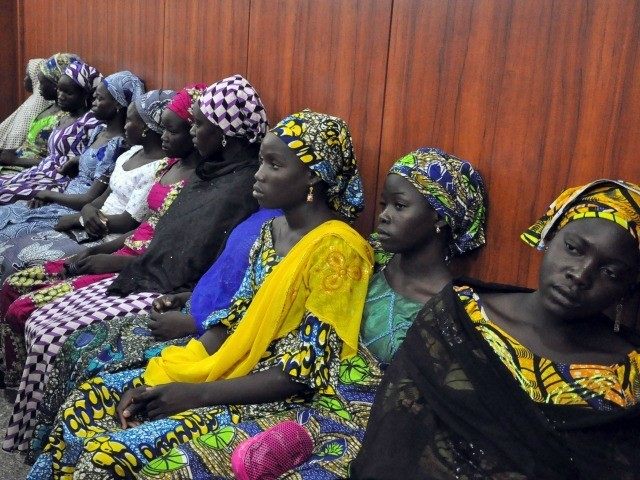Women who associate with Boko Haram, either willingly or by force, often face stigma when they return home, more than males who voluntarily join the terrorist group, a U.S. diplomat told Voice of America (VOA).
Once they return to their home communities, women and girls formerly involved with the Nigerian Islamic State (ISIS/ISIL) wing Boko Haram, either voluntarily or involuntarily, face difficulty finding a husband and caring for their children, noted U.S. Deputy Ambassador to the United Nations Michele Sison in an exclusive interview with VOA.
Women “are often widowed or alone, caring for several children with no way to provide an income for their family,” explains Voice of America.
On top of struggling with poverty, violence, and isolation, women and girls once linked to Boko Haram fall prey to sexual exploitation and abuse as well as early and forced marriage in their communities, she added.
After suffering some major losses in recent months, Boko Haram has reportedly resorted to more asymmetric tactics, such as suicide bomb attacks.
“What we saw, particularly with this increase of the use of women and children as suicide bombers, is that the issues surrounding the examination of root causes, but also of de-radicalization, is necessary,” declared the deputy ambassador in an exclusive interview with VOA.
Deputy Amb. Sison returned Tuesday from a five-day U.N. Security Council mission to Nigeria, Cameroon, Chad, and Niger — countries where an estimated 26 million people “are suffering from the effects of a humanitarian crisis fueled by the terror group’s attacks, including severe food shortages,” notes VOA.
In December 2016, Nigerian President Muhammadu Buhari claimed that Boko Haram had finally been crushed and pushed out of its last enclave in the vast Sambisa forest, Boko Haram’s primary stronghold in northeastern Nigeria.
However, the Nigerian government often claims that it has defeated Boko Haram, but the terrorist group tends to continue carrying out attacks.
Although U.S.-backed local efforts have degraded Boko Haram, senior government officials from the four countries visited by Sison reportedly acknowledged that the terrorist group remains a threat.
Sison and other U.N.-linked representatives met with various displaced refugee women in Cameroon and Nigeria.
“In Maiduguri, [Cameroon,] we were talking about food rations and one of the mothers said ‘Well, I have eight children and these food rations are not stretching far enough to feed all eight children and so I have to go outside of this camp to beg,’” revealed the American diplomat.

COMMENTS
Please let us know if you're having issues with commenting.